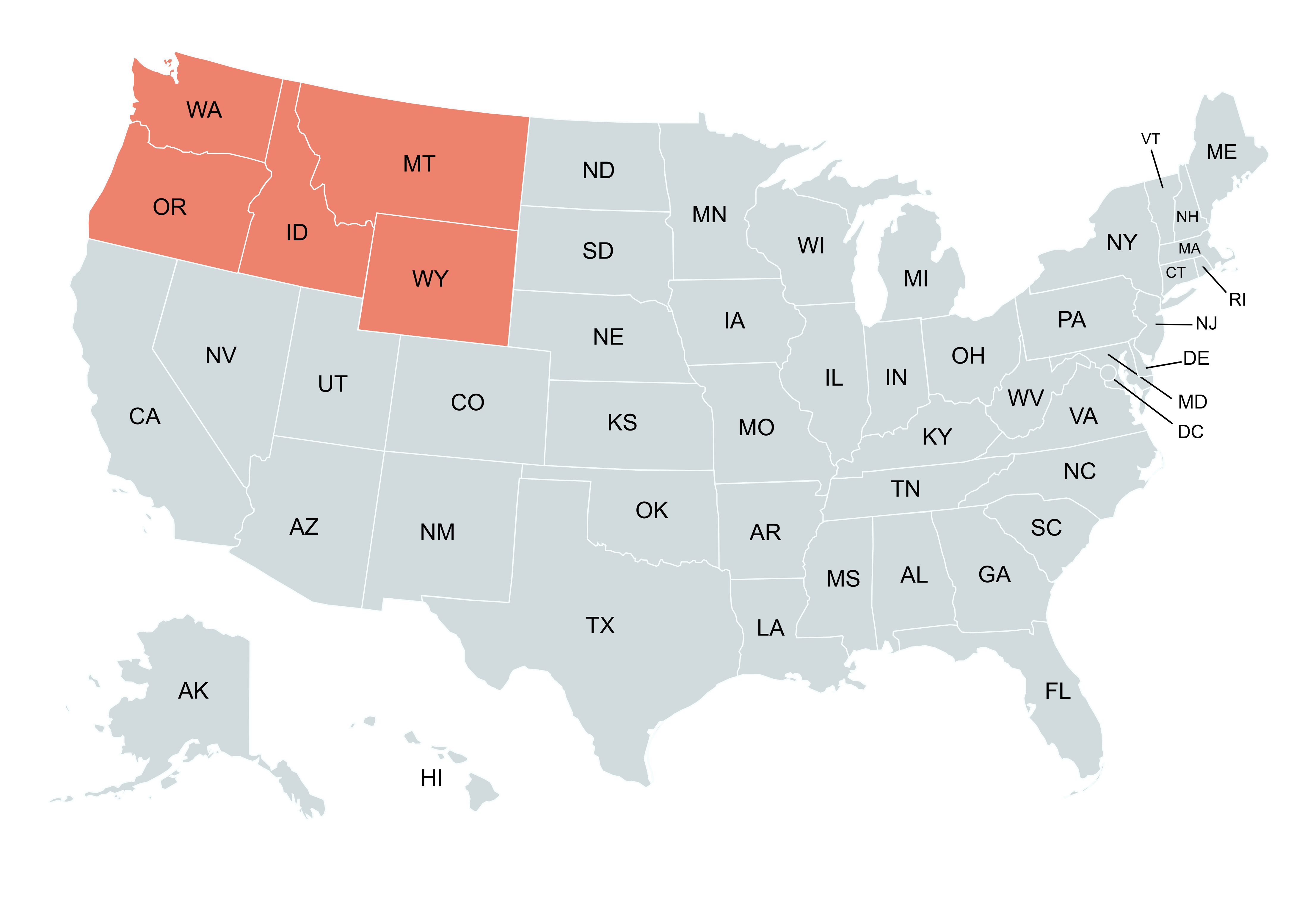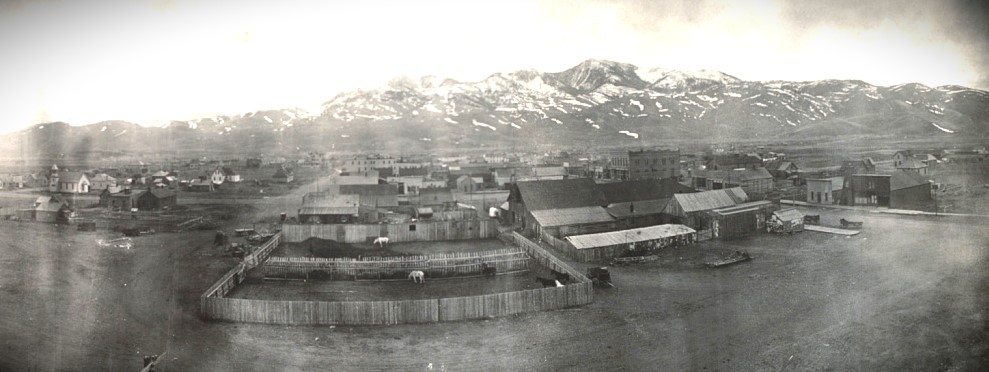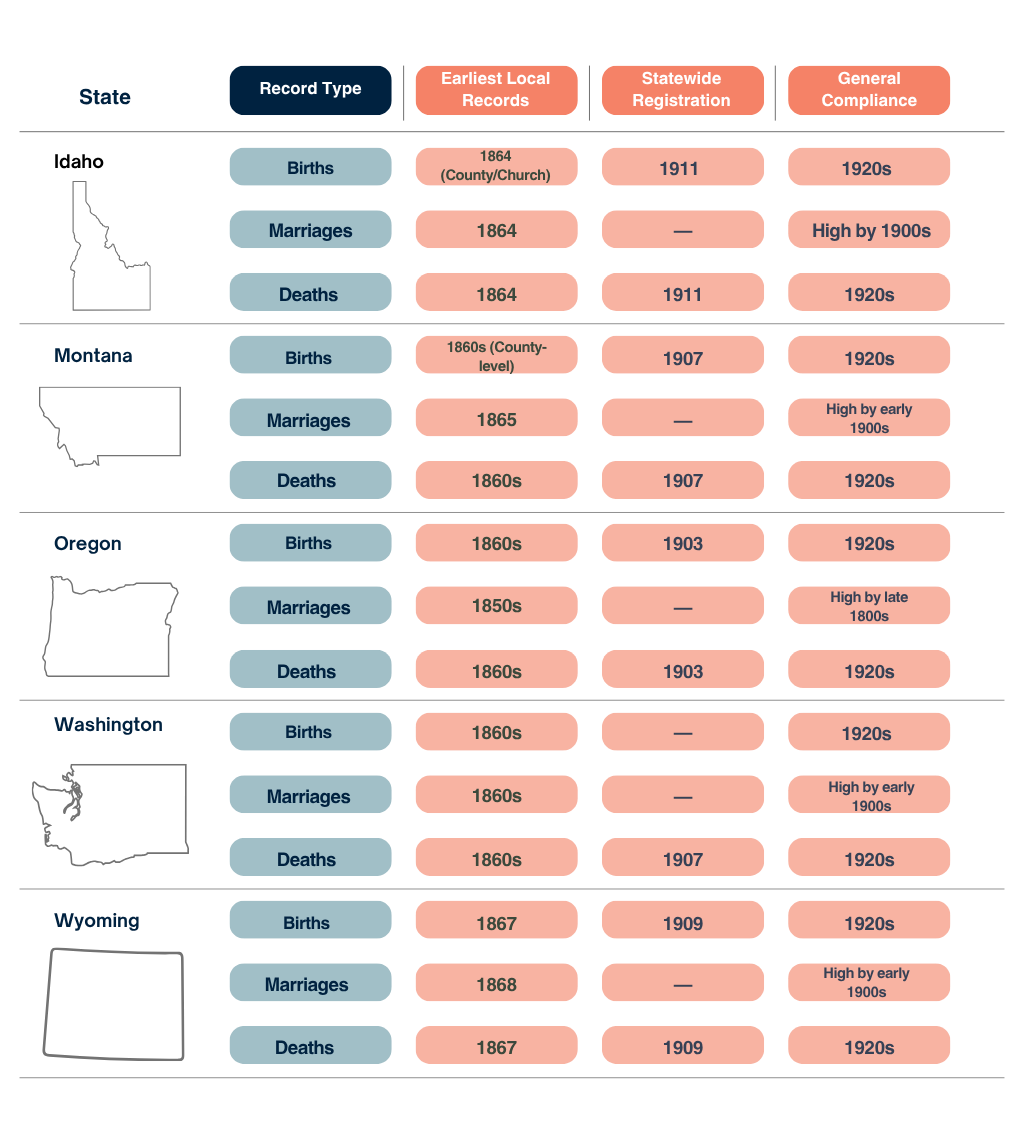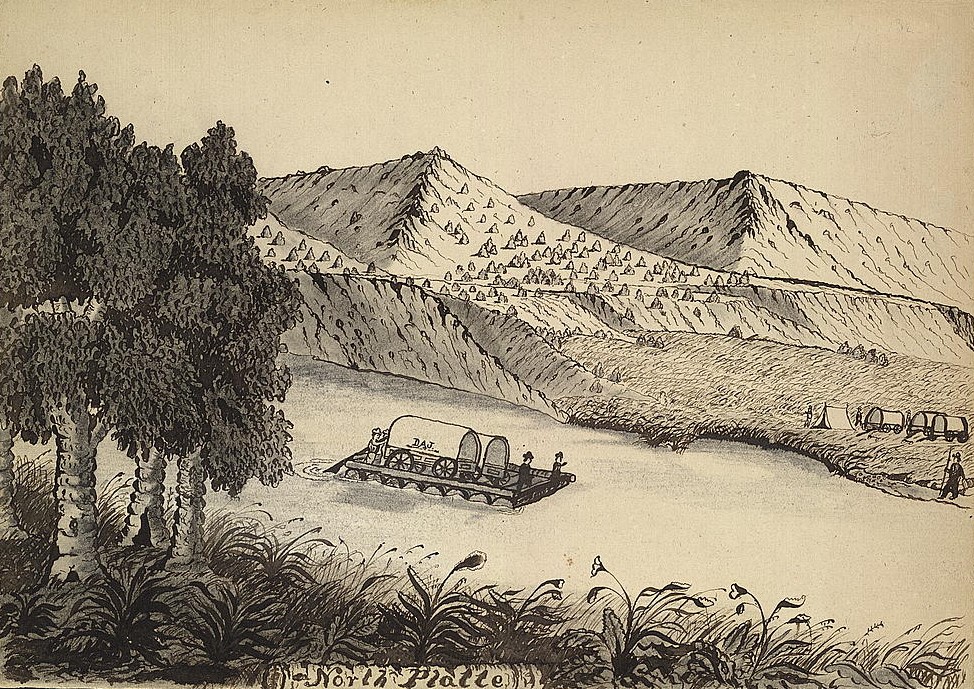The Pacific Northwest and Northern Rockies, home to Idaho, Montana, Oregon, Washington, and Wyoming, offer a frontier legacy marked by exploration, indigenous heritage, and waves of settlement driven by opportunity and reinvention. Whether your ancestors came to homestead under the promise of the West, arrived via the Oregon Trail, or helped build mining camps and timber towns, this region holds a wealth of genealogical records just waiting to be uncovered.
With territorial land grants, pioneering religious missions, expansive federal land office records, and vital registrations reaching back to the 1800s, the Northwest provides a dynamic genealogical landscape for tracing roots through the American expansion era.

Genealogy in the Northwest is shaped by the region’s unique mix of Indigenous sovereignty, international exploration, and westward migration. Long before the U.S. arrival, tribal nations such as the Nez Perce, Salish, Kootenai, Shoshone, Yakama, and Coastal Salish maintained ancestral lands and cultural traditions. Oral history, tribal censuses, and Bureau of Indian Affairs records provide a foundation for exploring Native genealogy, often in partnership with tribal authorities.
Spanish explorers ventured into what is now Oregon and Idaho in the 18th century, but it was the Lewis and Clark Expedition (1804–1806) that opened the Northwest to U.S. interest. Subsequent fur trading posts, including those operated by the Hudson’s Bay Company, generated logs, shipping manifests, and labor rosters that detail some of the earliest non-Native settlement.
By the mid-1800s, the Oregon Trail brought tens of thousands of families westward into newly created territories. Oregon became a state in 1859, followed by Washington (1889), Idaho (1890), Montana (1889), and Wyoming (1890). Territorial censuses, land grants, and voter registrations from these transitional years are rich in genealogical detail.
Religious missions and homesteading fueled much of the early institutional recordkeeping. Catholic, Methodist, and Presbyterian churches kept sacramental registers and school rosters for Native and settler children alike. Federal land records, military enlistment rolls, and early probate files show the administrative growth of communities that started as outposts and grew into towns.
In the late 19th and early 20th centuries, the expansion of railroads, mining booms, and the timber industry brought waves of immigrants from Scandinavia, China, Eastern Europe, and Japan. Chinese laborers helped construct rail lines; Japanese and Filipino migrants worked in agriculture and fisheries; and Scandinavian settlers established farming communities. This influx created a multilingual, multicultural archival footprint, including foreign-language newspapers, labor union files, and naturalization petitions.
World War I and II saw another wave of migration, as people moved into the region for shipbuilding, military posts, and internment camps like Minidoka in Idaho. These events generated employment records, military rosters, and detailed federal files on displaced communities.

Vital records in the Northwest were collected on a county basis long before statewide mandates took hold. This makes county courthouses, local historical societies, and religious archives essential first stops for researchers.
Church records remain crucial for identifying early settlers, especially in remote areas where civil registration was slow to develop. Baptisms, burials, marriages, and conversions were meticulously tracked by Catholic and Protestant missionaries from the early 1800s. These are often preserved in diocesan archives, university collections, or church-held microfilm.
Land records, including pre-emption claims, homestead applications, and timber sales, can help place families in a specific place and time. The Bureau of Land Management maintains patent databases that are especially useful in this region.
Census data from 1850 forward is available for all five states, with some territorial and Native censuses offering earlier glimpses. Naturalization files, military enlistment rosters, and school census records provide even more insight into family structures and mobility.
Newspapers, both local and ethnic, are excellent resources for obituaries, marriage announcements, land transfers, and court proceedings. Scandinavian, German, Japanese, and Chinese language papers circulated in immigrant-heavy areas, documenting community life in remarkable detail.

Idaho is a state of rugged trails and homesteads. Researchers can find territorial censuses, mining company rosters, and early Catholic parish records that document waves of settlers and Indigenous peoples. The Idaho State Archives and diocesan collections in Boise are major resources.
Montana is rich in mining history, with county courthouses holding land patents, mining claims, and probate files from the 1860s forward. The Montana Historical Society maintains extensive newspaper archives and family history collections.
Oregon holds one of the most complete sets of migration and land records due to its central role in the Oregon Trail. Researchers will find strong vital records, mission archives, and property files stretching back to the 1840s. The Oregon Historical Society and county clerks maintain wide-ranging collections.

Washington was shaped by coastal trade, railroads, and immigration. City directories, labor records, and naturalization petitions are strong in cities like Seattle and Tacoma. The Washington State Digital Archives offer excellent online access.
Wyoming was the gateway to the West for many wagon trains and soldiers. Vital records begin in the territorial period, and land and court records are extensive. The Wyoming State Archives and local museum networks are particularly helpful.
Unlike the major East Coast metropolises, urban research in the Northwest often centers around economic hubs that rose and fell with industry. Mining boomtowns in Montana and Idaho, logging camps in Oregon and Washington, and railroad hubs like Cheyenne or Spokane offer distinctive research opportunities.
City directories and tax rolls trace short-term movement. County jails, coroner’s inquests, fraternal society rosters, and school enrollment books add depth to family portraits. In port cities like Portland and Seattle, immigration records, passenger manifests, and labor union documents are key to tracking workers from Asia and Europe.
Because many Northwestern cities emerged after 1850, their record trails are often better preserved than those of older Eastern cities. Fire insurance maps, city planning documents, and early sanitation records can all hold surprising genealogical value.
Genealogical research in Idaho, Montana, Oregon, Washington, and Wyoming requires creativity, cross-referencing, and a willingness to explore multilingual, multi-source documentation. But the reward is a vibrant reconstruction of pioneer life, migration networks, and immigrant communities that forged new identities in the American West.
From timber camps to territorial courts, every document in the Northwest brings you closer to your ancestors’ journey.
Uncovering your family story in the Northwest begins with knowing where to look—and how to follow the trails left behind. Whether you’re tracing homesteaders, loggers, miners, immigrants, or tribal ancestry, our regional resources will help illuminate your path.
Contact Trace today and start your genealogy journey through Idaho, Montana, Oregon, Washington, and Wyoming and bring your Western Pioneers legacy to life.
Expand your family history journey—explore our expert services across these regions and research specialties: